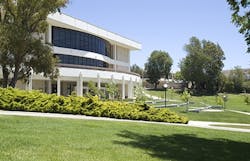Chicago is the Greenest U.S. City for Buildings According to CBRE
Chicago is the greenest city in the nation according to a CBRE Green Building Adoption Index study with Maastricht University. The windy city boasts 66% of space qualifying as green certified. To be considered “green,” office buildings need to hold either an EPA ENERGY STAR label or a USGBC LEED certification.
Rounding out the top five on the list are San Francisco, Atlanta, Houston and Minneapolis.
In addition to ranking cities, the study takes a deep dive into broad trends in the green building industry, finding that institutional owners of office buildings continued to pursue green building certifications in the 30 largest U.S. markets.
10.3% of all buildings surveyed are Energy Star labeled, while 4.7% are LEED certified, both just ahead of last year’s total numbers, although the total percentage of certified space fell slightly due to expiration of some certifications.
“While it is still too early to make a definitive correlation between benchmarking ordinances and the rate of growth in ‘green’ buildings, this year’s findings do begin to establish a link that will be studied closely in the future,” says David Pogue, Global Director of Corporate Responsibility with CBRE.
“Even though the current federal legislative agenda has shifted the focus away from energy efficiency and sustainability, the momentum in the commercial real estate industry toward improving building operating performance and enhancing building quality is hard to derail,” says Dr. Nils Kok, associate professor at Maastricht University.
This is the fourth release of the annual Green Building Adoption Index. Based on a rigorous standards, the Index shows the growth of ENERGY STAR and LEED-certified space for the 30 largest U.S. office markets, both in aggregate and in individual markets, over the previous 10 years.
To view the study in full, please click here.
